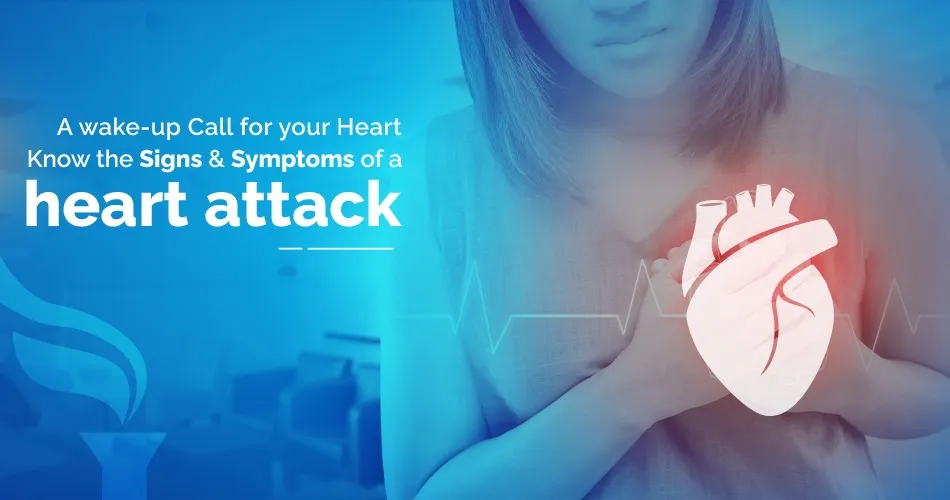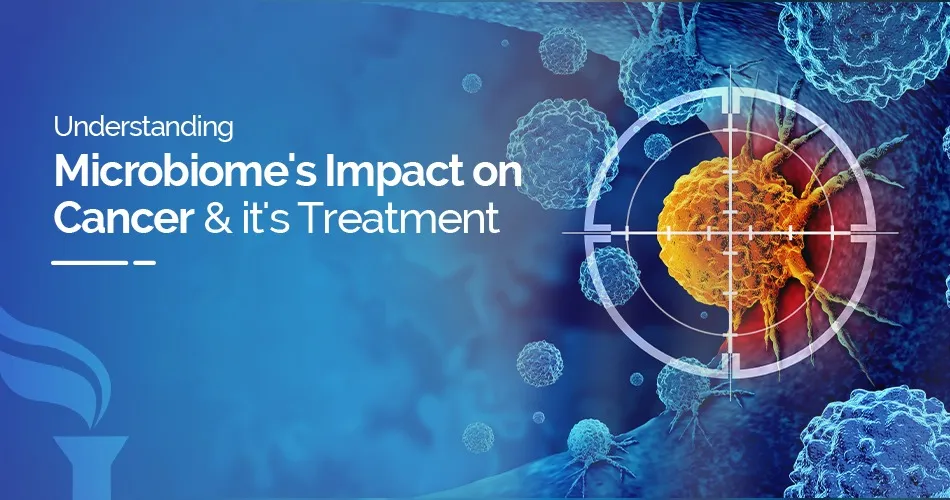Recognizing the Red Flags: Signs and Symptoms of a Heart Attack
Sep 23, 2023

A heart attack, medically termed as myocardial infarction, is a severe condition that occurs when blood flow to a portion of the heart muscle gets blocked abruptly. Identifying the tell-tale signs of a heart attack is paramount for saving lives. In this blog, we'll shed light on the typical symptoms of heart attack to keep you informed and prepared in case of any emergency.
What are the early signs and symptoms in men and women?
Chest pain or discomfort
The most well-known symptom of a heart attack is chest pain or discomfort. This pain, which can feel like immense pressure, often lasts for several minutes and may come and go. It's important to note that not all heart attacks present with severe chest pain, and some people may experience mild discomfort or none at all. But if it is frequent, consulting a cardiologist will be best.
Pain radiating to other areas
The pain from a heart attack may not be limited to the chest. It can radiate to other parts of the body, including the arms (often the left arm, but it can also affect the right arm), jaw, neck, back, and even the stomach. If you experience unexplained pain in these areas, especially in conjunction with chest discomfort, seek medical attention immediately.
Shortness of breath
Another common sign of a heart attack is difficulty breathing, or shortness of breath. You may feel like you are struggling through every breath, and this symptom can occur with or without chest pain. It's often accompanied by a feeling of anxiety, but in the case of a heart problem, it is an alarming sign.
every breath, and this symptom can occur with or without chest pain. It's often accompanied by a feeling of anxiety, but in the case of a heart problem, it is an alarming sign.
Cold Sweat
Sweating without cause, especially when it's cold or you haven't been physically active, can be an indication of a heart attack. This cold sweat is distinct from the regular perspiration that occurs during exertion or in hot conditions.
Nausea or Vomiting
Some people who are having a heart attack may become sick or vomit. This symptom is more common in women than in men and is easily misdiagnosed as indigestion or a stomach illness.
Fatigue
Fatigue is also an alarming sign for a heart attack when it is regular and is accompanied by chest pain and dizziness. In this case, you should rush to the doctor before it becomes a heart attack.
How do I avoid heart problems?
Medical Course: Consult a cardiologist for early symptoms and take proper medication because it will not help you to thwart proximate risk but to lead a healthy life.
Regular Exercise: Exercise releases happy hormones, so doing it on a regular basis not only burns fat and calories but also refreshes your mind and keeps you active all day.
Balanced Diet: Avoid eating processed foods, fried foods, and dairy products as they increase cholesterol. Following a balanced diet like fruits and vegetables helps you stay fit, feel light all day, and be positive with the assurance that it is good for your health.
Conclusion
Recognising the signs of a heart attack is crucial for prompt medical intervention. Remember that experiences like severe chest pain, fatigue, and dizziness on a regular basis are alarming signs of heart disease.
If you or someone you know is experiencing any of the signs mentioned, seek emergency medical attention immediately.
Timely treatment can save lives by minimising the risk. Always prioritise heart health through a balanced diet, regular exercise, and routine check-ups with your healthcare provider to reduce the risk of a heart attack.
Take care of your heart health, and if any symptoms are felt, feel free to reach out to us. We, at Apollo Diagnostics, give accurate results that help you track your heart health.
Related Blog Post
Blog Categories
- Child Health
- Mens Health
- Women's Health
- Mental Health
- Health Myths & Facts
- Fitness
- Nutrition/Recipes
- Remedies
- Weight Management
- Stress Management
- Health Supplements
- Addiction Management
- Disease Management
- Allergy
- Anemia
- Arthritis
- Asthma
- Autoimmune Diseases
- Blood Pressure
- Cancer
- Deficiencies
- Dengue/Malaria/Chikungunya
- Diabetes
- Eye Problems
- Heart Diseases
- Hepatitis
- HIV/AIDS/STD
- Hormonal Imbalance
- Infection/Flu/Viral
- Kidney
- Liver
- Menstrual Problems
- Pregnancy
- Skin & Hair Problems
- Stomach Ailments
- Thyroid
- Others
- Health Checkups
- Diagnostics/Pathology
- Lifestyle & Wellness
- Covid
- Medical Tests
- Cholesterol
- Health Tips
- Parent Care/Old Age
- Lungs
- Food Intolerance








